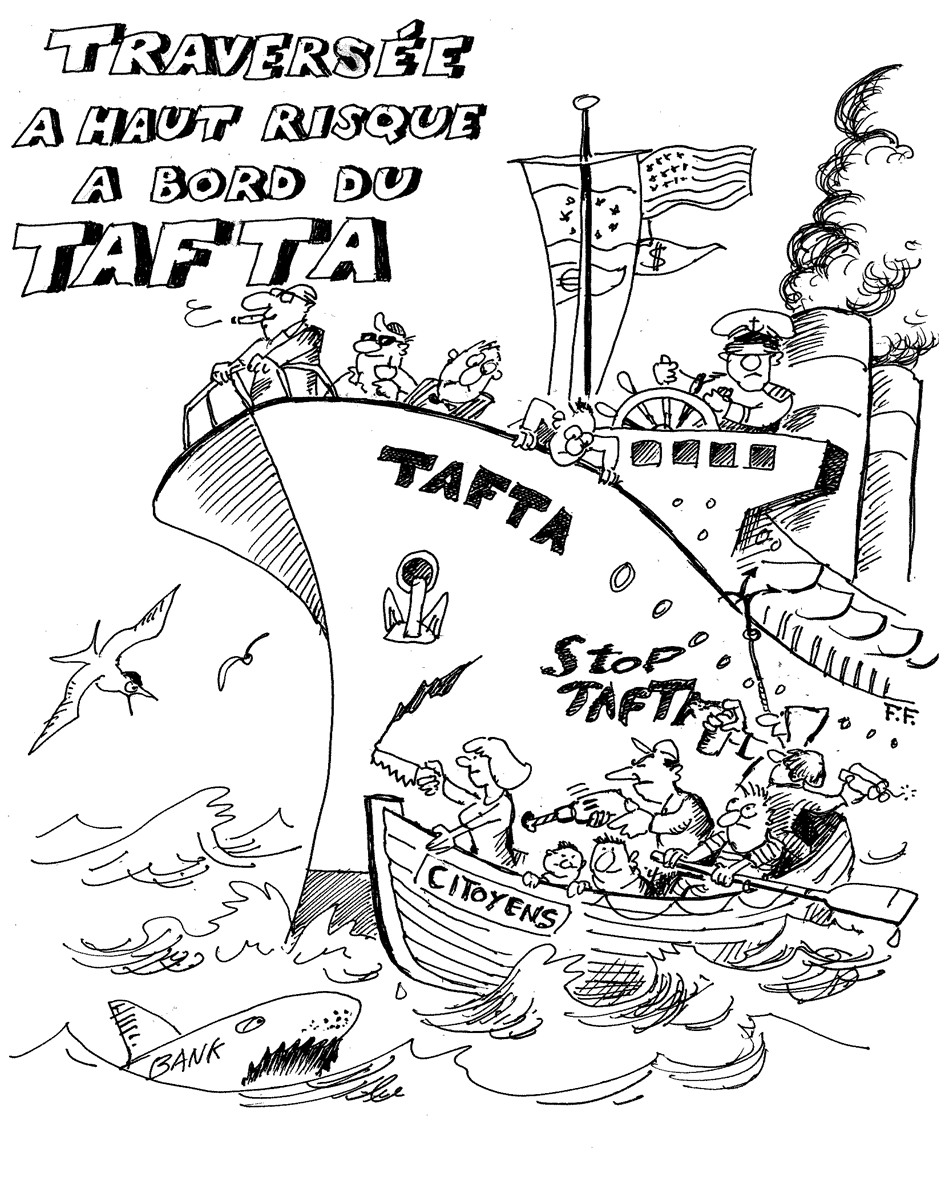Europe: The fear of arbitral tribunals
All the versions of this article: [English] [français]
Le Monde | 13.01.2015
Translated by Anoosha Boralessa (January 2016). Not reviewed by bilaterals.org or any other organization or person.
Europe: The Fear of Arbitral Tribunals
Author: Cécile Ducourtieux (Brussels, European Office)
145,000 responses out of a total of 150,000… the consultation on investor arbitration that the European Commission launched in Spring 2014, the findings of which were only delivered on Tuesday 13 January. The consultation delivered an unambiguous verdict: today, public opinion does not want it.
«That clearly demonstrates that this mechanism attracts considerable scepticism»,
acknowledged Cécilia Malmström, the Trade Commissioner who made a trip to the European Parliament in Strasbourg on Monday to present the consultation and who herself has deep reservations on arbitral tribunals.
Investment arbitration is a mechanism that allows a business to use a private “neutral” tribunal to attack a State if the business considers that its investment has been harmed. All – or almost all - bilateral investment agreements between countries provide the option of having recourse to this justice system, deemed to be highly protective of business-interests. But, since the European Commission announced that it was planning to include these arbitration tribunals (“ISDS” which stands for Investment State Dispute Settlement), in the Transatlantic Treaty (an agreement that completely deviates from the norm and which is of considerable geopolitical scope) that began with the United States, the level of concern was cranked up a notch.
NGOs, Euro MPs and ordinary citizens are concerned about the capacity of the State to regulate. Some recent cases have alerted them: thus the case of Phillip Morris, the cigarette company, which attacked Australia just after the Australian government adopted a law in 2011 requiring cigarette packets to be neutral. A ruling has still not been delivered.
Among the responses to the consultation, even members of business circles, if not hostile to arbitration in principle, are concerned in case the European Union « reduces the level of investor protection». Others fear that the arbitral mechanism is still « the prerogative of “megista” business», because it will be difficult for small, private investors to have recourse to it, due to its «cost and complexity ».
Europeans must reach an agreement
Mindful that ISDS has some failings and that it must be improved, on Tuesday in Strasbourg, the Commission has sketched out four areas for work:
To guarantee states the right to regulate
To smoothen coordination between national courts and these private tribunals
To improve the regulation of these tribunals – to ensure arbitrators really are independent.
Finally, the need to put in place a genuine appeal mechanism in respect of decisions rendered by the tribunals – which at present is almost impossible.
On Tuesday Cécilia Malmström was very clear:
«We have to lead a frank and open discussion on investment protection and dispute resolution under the Transatlantic Partnership with Governments of EU Member States, the European Parliament and civil society before issuing any political recommendation in this domain. This will be the first thing to do once this report has been published.»
Europeans will need to agree on the substance in the next few weeks before continuing to negotiate the transatlantic treaty with the Americans. Shall we preserve an ISDS procedure in this treaty or not? Within the Commission, opinions are divided. At the end of 2014, President Juncker publicly expressed his reservations. The services of the institution are rather for, considering that these tribunals remain a very good method for protecting European investments outside the Union.
Euro MPs are rather reserved, with all political parties in a state of confusion. As for the member states, they are also divided.
«France has never been in favour of integrating an ISDS into a transatlantic treaty»,
the Secretary of State for Trade, Matthias Fekl, declares to Le Monde. He has to go in the coming days to Berlin to try to find common ground with his German homologue. Mr Fekl lists:
«If we have to retain the ISDS in the treaty, we will at the same time request greater controls on the appointment of arbitrators, so that businesses that abuse arbitration can be better controlled, so that rulings can be rendered against businesses that abuse the process»,
The Secretary of State also considers:
« Why do we not also consider submitting an arbitral decision– for confirmation– to a judge of a national court? It would also provide a vehicle for States to regain control»,
Cécile Ducourtieux (Brussels, European Office)
Brussels Correspondent






